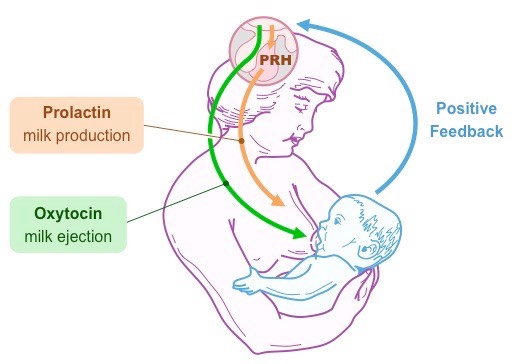Understanding the importance of Lactıon
Lactıon is a natural process that allows mothers to provide optimal nutrition and immunity to their babies. Breast milk is rich in essential nutrients, antibodies, and enzymes that support the growth and development of infants. It is crucial for nursing mothers to understand the importance of lactation and the benefits it offers to both the mother and the baby.
Breastfeeding not only provides the necessary nutrients for the baby but also helps in developing a strong bond between the mother and the child. Studies have shown that breastfed babies have a lower risk of infections, allergies, and chronic diseases later in life. Additionally, breastfeeding promotes healthy weight gain in infants and aids in the development of their immune system.
Common challenges faced by nursing mothers
While lactıon is a natural process, many nursing mothers face challenges along the way. One common challenge is difficulty in establishing a good latch. This can lead to nipple soreness and low milk supply. It is essential for nursing mothers to seek help from lactation consultants or healthcare professionals to overcome these challenges. They can provide guidance on proper latch techniques and offer support to ensure a smooth breastfeeding journey.
Another challenge faced by nursing mothers is engorgement. This occurs when the breasts become overly full and tender due to an increase in milk supply. Engorged breasts can be painful and make it difficult for the baby to latch on properly. Applying warm compresses and expressing milk can help relieve engorgement. It is important for nursing mothers to be aware of these challenges and seek assistance when needed.
Benefits of successful Lactıon
Successful lactation provides numerous benefits for both the mother and the baby. Breast milk contains antibodies that help protect the baby from infections and diseases. It also contains enzymes that aid in digestion and promote the development of a healthy gut. Breastfed babies have a lower risk of obesity, diabetes, and respiratory illnesses compared to formula-fed babies.
For the mother, breastfeeding can aid in postpartum recovery by reducing the risk of postpartum bleeding and promoting the shrinkage of the uterus. It also helps in burning extra calories, which can assist in weight loss. Breastfeeding has been linked to a lower risk of breast and ovarian cancer in mothers as well. The emotional bond and sense of satisfaction that breastfeeding provides are invaluable.
Factors that can impact Lactıon success
Several factors can influence the success of lactation. Some of these factors include the mother’s overall health, stress levels, and breastfeeding techniques. Mothers who are well-nourished and maintain a healthy lifestyle are more likely to have a successful breastfeeding experience. Stress and anxiety can negatively impact milk production, so it is important for nursing mothers to find ways to relax and prioritize self-care.
Breastfeeding techniques such as proper latch and positioning are crucial for successful breastfeeding. If the baby is not latching on correctly, it can lead to nipple soreness and low milk supply. Seeking guidance from a lactation consultant or attending breastfeeding classes can be immensely helpful in learning the correct techniques and ensuring a smooth breastfeeding journey.
Strategies for maximizing lactation success
There are several strategies that nursing mothers can implement to maximize lactation success. One important strategy is frequent and effective breastfeeding. Newborns have small stomachs and need to feed frequently to stimulate milk production. It is recommended to nurse on demand, allowing the baby to dictate the feeding schedule.
Another strategy is to establish a good breastfeeding routine. Creating a calm and comfortable environment for breastfeeding can help both the mother and the baby relax. Finding a comfortable position and using breastfeeding aids such as pillows or nursing chairs can make the experience more enjoyable.
Proper nutrition is also key to maximizing lactation success. Nursing mothers should consume a well-balanced diet that includes plenty of fruits, vegetables, whole grains, and lean proteins. Staying hydrated is equally important, so drinking an adequate amount of water throughout the day is essential.
The role of nutrition in lactation
Nutrition plays a crucial role in lactation success. A well-balanced diet provides nursing mothers with the necessary nutrients to produce high-quality breast milk. It is important to include foods rich in protein, calcium, iron, and omega-3 fatty acids in the diet.
Protein-rich foods such as lean meats, fish, eggs, and legumes are essential for milk production. Calcium is important for the development of strong bones and teeth in both the mother and the baby. Good sources of calcium include dairy products, leafy greens, and fortified foods.
Iron is necessary to prevent iron deficiency anemia in both the mother and the baby. Iron-rich foods such as lean meats, lentils, spinach, and fortified cereals should be included in the diet. Omega-3 fatty acids, found in fatty fish, walnuts, and flaxseeds, are beneficial for brain development in infants.
Support and resources for nursing mothers
Nursing mothers should seek support and utilize available resources to ensure a successful breastfeeding journey. Support can come from various sources, including healthcare professionals, lactation consultants, and support groups. These individuals can provide guidance, answer questions, and offer reassurance during challenging times.
Breastfeeding support groups and online communities can provide a sense of community and allow nursing mothers to connect with others who are going through similar experiences. These groups are a great platform to share concerns, seek advice, and find encouragement.
Additionally, there are several resources available, such as books, websites, and apps, that provide valuable information on breastfeeding techniques, troubleshooting common issues, and maintaining a healthy breastfeeding relationship. Utilizing these resources can help nursing mothers feel empowered and confident in their breastfeeding journey.
Overcoming common misconceptions about breastfeeding
Breastfeeding is surrounded by many misconceptions that can discourage nursing mothers. One common misconception is that some women do not produce enough milk to meet their baby’s needs. In reality, the majority of women are capable of producing an adequate milk supply. It is important for nursing mothers to trust their bodies and seek support if they have concerns about milk supply.
Another misconception is that breastfeeding is always painful. While it is common to experience some discomfort in the early stages, breastfeeding should not be consistently painful. Seeking help from a lactation consultant or healthcare professional can help identify and address any underlying issues causing pain or discomfort.
Professional support for nursing mothers
Professional support is invaluable for nursing mothers. Lactation consultants are highly trained professionals who specialize in breastfeeding support. They can provide guidance on breastfeeding techniques, help with latching issues, and offer solutions for common breastfeeding challenges.
For nursing mothers who face more complex issues, such as low milk supply or breastfeeding difficulties due to medical conditions, seeking support from a healthcare professional, such as a lactation specialist or a pediatrician, is crucial. These professionals can offer personalized advice and develop a tailored plan to address specific concerns.
Conclusion: Empowering nursing mothers for lactation success
Maximizing lactation success is essential for the health and well-being of both the mother and the baby. Understanding the importance of lactation, being aware of common challenges, and implementing proven strategies can help nursing mothers overcome obstacles and have a successful breastfeeding experience.
By prioritizing self-care, seeking support from healthcare professionals, and maintaining proper nutrition, nursing mothers can empower themselves to provide the best possible start for their babies. Breastfeeding is a beautiful and natural process that nurtures the bond between a mother and her child, and with the right knowledge and support, nursing mothers can thrive in their breastfeeding journey.







